Crown Office paid £10K to law firm subject of Police raid. SCOTLAND’S Crown Office & Procurator Fiscal Service (COPFS) has been forced to pay £10K public cash in legal and ‘other fees’ to a law firm representing a ‘important client’ in relation to a botched search blocked by a judge.
The payment of £10,021.38 to Edinburgh law firm Clyde & Co (formerly Simpson & Marwick) was revealed by prosecutors in response to a Freedom of Information request amid ongoing media enquiries which have now established any possible criminal prosecution in connection with the allegations of abuse is “dead in the water”.
The events surrounding the search warrant occurred last summer, in which Police Officers obtained a search warrant to raid the premises of Edinburgh law firm Clyde & Co, in relation to material officers believed the firm held relating to evidence of historical sexual abuse of minors.
A search warrant issued by a Sheriff upon an application from the Crown Office to raid the law firm, resulting in two police officers attending the offices of Clyde & Co at 58 Albany Street, Edinburgh, at 10am on 22 July 2016 with a search warrant to obtain the evidence.
However, a stand off ensued while Clyde & Co applied to the court for a judge to revoke the search warrant.
The search warrant was subsequently revoked blocked by senior judge Lord Brodie after counsel for Clyde & Co claimed legal professional privilege was attached to the alleged evidence of abuse.
While the Crown Office have now admitted they were required to pay legal & other fees to Clyde & Co, prosecutors refused to divulge any further information on the case, citing the information was held as part of a criminal investigation – which has now been dropped.
Christine Lazzarin for the Crown Office stated in the FOI response: “Firstly I should clarify that a Bill of Suspension hearing emanates from criminal proceedings and any correspondence held between COPFS, the Scottish Courts and Tribunal Service (SCTS), Police Scotland and Clyde & Co in relation to this hearing is exempt.”
“By way of explanation, this correspondence is held by a Scottish Public Authority, namely the Procurator Fiscal, for the purposes of an investigation which the Procurator Fiscal had a duty to conduct to ascertain whether a person should be prosecuted for an offence and it is therefore exempt from release in terms of Section 34(1)(a)(i) of FOISA.”
“This is not an absolute exemption and I have therefore considered whether the public interest favours disclosure of the information, notwithstanding the exemption.”
“Whilst I appreciate that there is a great deal of information in relation to the hearing publically accessible on the SCTS web-site, I consider that there is a strong public interest in maintaining the confidentiality of correspondence in connection with allegations of criminality and consequently the Bill of Suspension hearing.”
“The confidentiality of such information ensures that the agencies involved in the criminal justice process can report to the Procurator Fiscal in a manner which is free and frank and for this reason I consider that the public interest favours upholding the exemption.”
“You have also asked for information about fees, costs, legal expenses or other funds paid by COPFS to SCTS and Clyde & Co. I can advise that COPFS paid a total of £10,021.38 in fees, and other legal costs to Clyde & Co after the hearing.”
Further enquiries into the case by the media have now established the investigation into the case of alleged abuse has now been dropped – with legal insiders at the Crown Office blaming the Crown Office handling of the search warrant, and the effect of Lord Brodie’s order cancelling the search warrant.
Legal sources have also speculated Police Scotland may have been forced to pay the same law firm – Clyde & Co – for their actions in seeking to serve the warrant and obtain the alleged evidence of abuse.
During the Financial year 2016 to 2017, a mysteriously large sum of public cash – £213,933.24 was paid to Clyde & Co by Police Scotland according to figures obtained in a recent media investigation into Police payments to law firms, reported in more detail here: Concerns on Public Bodies Legal Fees spending as figures reveal Scottish Police Authority fork out over £1m in legal fees, Police Scotland spend at least £1.3 million on external lawyers
However, faced with further searching enquiries, Police Scotland have point blank refused to disclose any further information about their payments to Clyde & Co and other law firms.
While the Crown Office have now dropped a prosecution in relation to the alleged abuse, the media are eager to speak to anyone involved in the investigation, or the victims themselves, who can if they wish come forward to DOI, by way of contacting the blog at scottishlawreporters@gmail.com
This latest floundered investigation into what is alleged to be an influential figure in relation to historical abuse crimes – is another blow for the failing leadership of the Crown Office – under current Lord Advocate James Wolffe QC & Solicitor General Alison Di Rollo (sister of Glasgow solicitor & former Law Society of Scotland President – Austin Lafferty)
Last month, it was revealed the Crown Office has given jobs – without interview – to relatives of high ranking Crown Office staff, who then went on to be charged with drug dealing offences – information which came to light in an ongoing investigation into Prosecutors interests and a secret Crown Office register of interests, reported in more detail here: DECLARE THE CROWN: Secrecy block on Crown Office Register of Interests – after fears info will reveal crooked staff, dodgy business dealings, prosecutors links to judiciary, criminals, drugs dealers and dodgy law firms
The Sunday Mail newspaper reported the payments from the Crown Office to Clyde & Co here:
Court chiefs fork out £10k to law firm after botched raid in abuse probe
‘Standards were not met’ when cops turned up with a warrant at Clyde and Co’s Edinburgh office and tried to seize ‘privileged and confidential’ material.
By Craig McDonald Sunday Mail 8 OCT 2017
Prosecutors have paid £10,000 to a law firm after a botched raid on their offices.
Police wanted to seize files from Clyde and Co lawyers that they believed related to an abuse investigation.
But the firm objected, stating the material was “privileged and confidential”.
Despite this, two officers turned up at the firm’s Edinburgh branch with a search warrant in July last year. The warrant was eventually blocked after a court hearing.
Judge Lord Brodie later ruled “standards were not met” regarding prosecutors’ handling of the case.
The Crown Office have now paid £10,021 in legal fees and costs to Clyde and Co.
Detective Constable Nicola Gow called Clyde and Co by phone on July 7 last year to tell the firm they had information in their files that might be relevant to a criminal inquiry.
Graeme Watson, a partner, told her he would check what information he could provide but that “client files were privileged and confidential”.
Gow said she would discuss it with her superior officer but told the firm “a search warrant might be sought”.
Watson wrote to the sheriff clerk in Edinburgh stating the files were covered by the “Data Protection Act, confidentiality and agent-client privilege”.
Two police officers turned up at the firm’s building in the city’s Albany Street with a warrant at 10am on July 22.
Clyde and Co went to court to have it blocked. In his judgment, Lord Brodie found the procurator fiscal’s actions in applying for the warrant “to have been oppressive”.
He said the wording was “misleading, if not simply inaccurate” and “requisite standards were not met”.
The Crown Office said last week: “We note the terms of Lord Brodie’s decision. The Lord Advocate has taken steps to ensure there will be no repeat of this situation.”
Police Scotland said: “As this is a matter for the Crown Office, it would be inappropriate for us to comment.”
Clyde and Co declined to comment.
POLICE STAND OFF AS JUDGE BLOCKS SEARCH WARRANT:
A full report on the opinion by Lord Brodie and his revocation of the Police Scotland search warrant was published by Scottish Law Reporter here: Police raid on Edinburgh law firm halted by judge – Lord Brodie hits out at Crown search warrant tactics against Clyde & Co over historic sex crimes investigation
An excerpt from the Bill of Suspension, signed by Lord Brodie in relation to the search warrant follows:
NOTE BY LORD BRODIE in BILL OF SUSPENSION by CLYDE AND CO (SCOTLAND) LLP Complainers;
against THE PROCURATOR FISCAL, EDINBURGH Respondent:
Complainers: Smith QC; Clyde & Co
Respondent: No appearance (Crown Office did not appear at hearing)
22 July 2016
[1] The complainers in this bill of suspension are a limited liability partnership, being solicitors with a place of business at Albany House, 58 Albany Street, Edinburgh. The respondent is the Procurator Fiscal, Edinburgh. The complainers seek suspension of a search warrant granted by the sheriff at Edinburgh on the application of the respondent, dated 21 July 2016 and timed at 1537 hours (“the search warrant”). The application which came before me, on 22 July 2016 not long before 1700 hours in chambers, was for interim suspension of the warrant. As at that time the bill had not been warranted for service. Having heard Mr Smith on behalf of the complainers, I adjourned in order to allow my clerk to advise Crown Office that the application had been presented and to invite the attendance of an advocate depute to represent the respondent. That invitation was made by telephone at a little after 1700 hours. It was not taken up. Having heard Mr Smith further, I suspended the search warrant ad interim, granted warrant for service of the bill and continued the matter to a date to be fixed.
[2] The circumstances in which that application was made, as I understood them from what appeared in the bill, in two telephone attendance notes and the explanation provided by Mr Andrew Smith QC, who was accompanied and instructed by Mr Graeme Watson, Solicitor Advocate, a partner in the complainers, are as follows.
[3] A client of the complainers is S. The complainers have acted for S in relation to claims for damages against it by individuals on the basis of its vicarious liability for alleged acts which occurred at a particular location, L. These claims have been discontinued on account of an acceptance that any claims were time-barred. It is averred by the complainers that in course of taking instructions from representatives of S these representatives “disclosed certain matters and were provided with advice… which advice and information being disclosed was privileged.” As I understood matters, the complainers retain in their possession documents and files, both paper and digital, generated in the course of acting for S which include information and advice in respect of which S, whose specific instructions have been taken on the point, asserts legal privilege.
[4] On 7 July 2016 Detective Constable Nicola Gow contacted the complainers by telephone. She spoke to Mr Watson. There were at least three telephone calls between DC Gow and Mr Watson on that day. I was shown copies of Mr Watson’s telephone attendance notes. DC Gow indicated that she was aware that the complainers held certain information in their client files for S that might be relevant to a criminal inquiry which was currently being undertaken. She already had copies of some documents but wished to obtain originals of these (including what she described as “originals” of unsigned statements held digitally), the litigation files and such other documents which were in the possession of the complainers. Mr Watson advised that the complainers would check what information they had access to with a view to establishing its whereabouts and what might be capable of being produced. Mr Watson indicated that the client files were privileged and confidential. Mr Watson advised that in the event of him receiving instructions to do so, he was willing to excise from the file certain material in order to assist the police inquiry. DC Gow suggested that they might arrange a time to look at the files together. Mr Watson said that he would need to take instructions on that proposal but that a provisional date for such a joint consideration of the files could be arranged. DC Gow indicated that she would discuss matters with her superior officer but that a search warrant might be sought.
[5] On 11 July 2016, in anticipation that an application for a warrant might be made, Mr Watson, on behalf of S wrote to the Sheriff Clerk in Edinburgh requesting that the Sheriff Clerk contact the complainers in the event of any application to the sheriff with a view to S being represented at any hearing before the sheriff. Mr Watson explained in that letter that the complainers and S had provided such assistance to Police Scotland as they could within the confines of the Data Protection Act 1998, confidentiality and agent-client privilege. The letter included the sentence: “In our submission it would be oppressive and prejudicial for a warrant to be granted without first hearing from [S].” No reply has been received to that letter.
[6] Subsequent to the conversations between Mr Watson and DC Gow and prior to 22 July 2016 neither the police, the respondent nor any other representative of the Crown contacted the complainers in relation to recovery of documents held by the complainers.
[7] At about 1000 hours on 22 July 2016 two police officers attended at the offices of the complainers at 58 Albany Street, Edinburgh, claiming to be in possession of the search warrant which they proposed to execute. Initially they were reluctant to allow Mr Watson to read the search warrant and then they were reluctant to allow him to copy it. Once Mr Watson had succeeded in persuading the police officers to allow him to read and copy the search warrant he was able to ascertain that it had been granted at common law in terms of the crave of a petition at the instance of the respondent in these terms:
“to any Constable of Police Service of Scotland and/or members of staff from the Scottish Police Authority or any other Officer of Law with such assistance as they may deem necessary, to enter and search the offices, out buildings and storage facilities of Clyde & Co, Albany House, 58 Albany Street, Edinburgh and to be at liberty to secure and take possession of any papers relating to L whether in electronic or paper format, and any other evidence which may be material to the investigation into the alleged abuse at L held by said Clyde & Co, whether in a computer system or otherwise.”
Insofar as material to the issues raised in the bill, the averments in the petition were as follows:
“[S] have provided copies of documents referring to a code of conduct for staff … a punishment book, lists … statements, including what purports to be a statement taken from [a named person] and signed by her …
[S] have indicated that the originals of these documents are held by their legal representatives, Clyde & Co, Albany House, 58 Albany Street, Edinburgh. A request has been made to have these documents released to Police Scotland, however, the solicitor has refused to release these documents, citing reasons of client confidentiality.
The solicitor has indicated that they will provide the originals of the documents already provided in copy format only.
“There are reasonable grounds for believing that evidence material to the investigation … is found within the documents being withheld by the solicitor. The solicitor has indicated to an officer of Police Scotland that there are two boxes of papers and electronic records relating to [L].”
The full note by Lord Brodie – which was published three months after the events of the search warrant took place, can be found here: COPFS Bill of Suspension – Clyde & Co – Lord Brodie
It is also worth noting the Scottish Government have recently announced the scrapping of time bar on historical sexual abuse cases, as the case referred to Lord Brodie does contain references to claims in relation to allegations of abuse becoming time barred.
The Scottish Government announcement on scrapping time bar for claims in relation to historical sexual abuse states the following:
The Limitation (Childhood Abuse) (Scotland) Act 2017 is a piece of legislation which changes the rules around the time limits within which you can make a claim for compensation in the civil courts. Usually you have to make your claim within three years of the injury, or (if it is later) three years from your sixteenth birthday.
This change will mean that there will no longer be a time bar on childhood abuse claims in the civil courts. (It applies to abuse of a person under the age of 18.) There will no longer be a requirement to make a claim within the three years or to ask the court to use its discretion to allow the case to go ahead after that period.
The law usually prevents claims being taken to court more than once. The Act makes a limited change to this for childhood abuse claims. If you took a claim to court before the Act became law, but lost because of the time bar, the Act means that you should not be prevented from taking another claim to court.
This change is in relation to the three year limitation period, which is relevant to abuse that took place on or after 26 September 1964.
The commencement of the Limitation (Childhood Abuse) (Scotland) Act 2017 means survivors of child abuse no longer face the ‘time-bar’ that requires personal injury actions for civil damages to be made within three years of the related incident.
Minister for Community Safety & Legal Affairs Annabelle Ewing, who took the legislation through Parliament, said the move was an important part of wider Scottish Government action to support survivors of childhood abuse.
Ms Ewing said: “Child abuse is the most horrific betrayal of our young people and, even where such crimes were committed decades ago, we will do all we can to help survivors get the justice they deserve. Police Scotland and the Crown continue to work tirelessly to bring perpetrators to justice through our criminal courts. And, while it may not be the right way forward for all, survivors may now be considering the option of accessing justice through the civil courts.
“This legal milestone would not have happened but for the courage of many adult survivors whose persistence and dedication have shone a light on the dark realities of child abuse. Through their brave testimonies they have made clear the great hurt and damage caused by the very individuals and institutions who should have cared for them.
“Alongside our national survivor support fund, the establishment of the independent public Inquiry into in-care childhood abuse, and the current consultation on a potential financial redress scheme, this removal of the civil time-bar underlines the Government’s commitment to ensuring Scotland is beginning to make amends for the grave failings of the past.”
Welcoming the introduction of the Act, Joanne McMeeking, Head of Improving Care Experiences at CELCIS at the University of Strathclyde, said: “The abolishment of the time bar is the result of many years of successful campaigning by survivors. It is a welcome addition to the package of effective reparation as outlined in the Action Plan on Justice for victims of Historic Abuse of Children in Care.”
For previous articles on the Crown Office, read more here: Scotland’s Crown Office – in Crown detail

























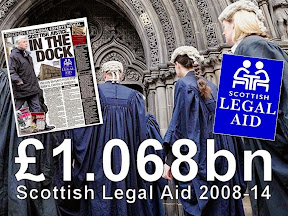















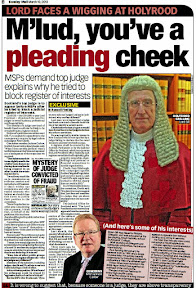
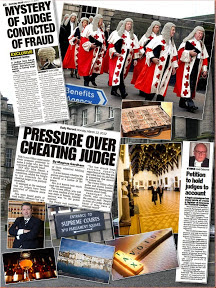
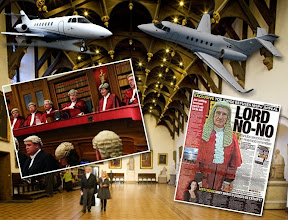


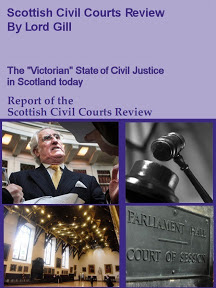
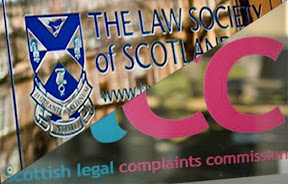




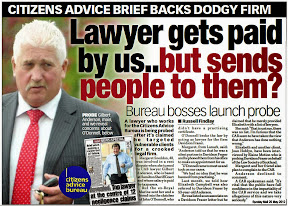



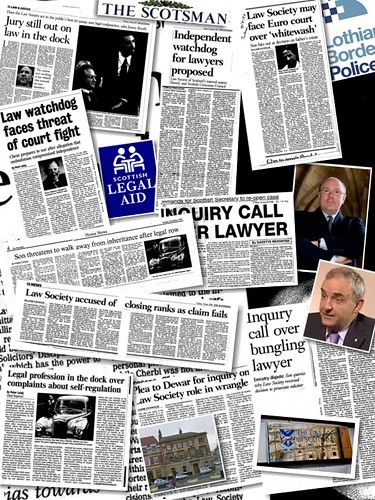




You must be logged in to post a comment.